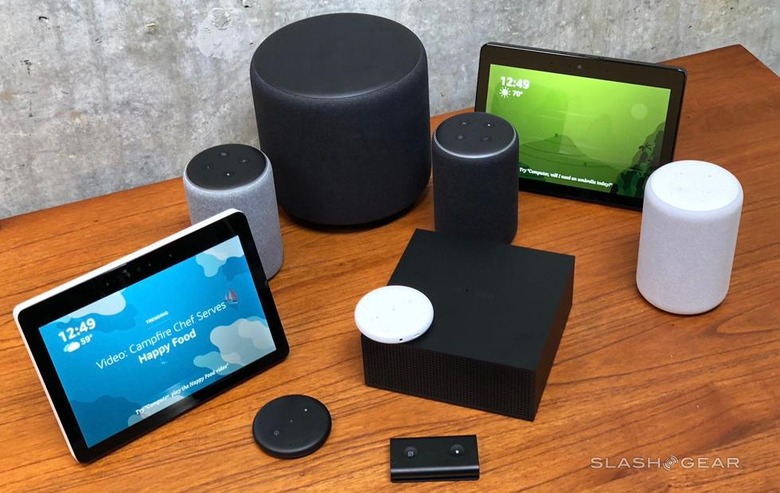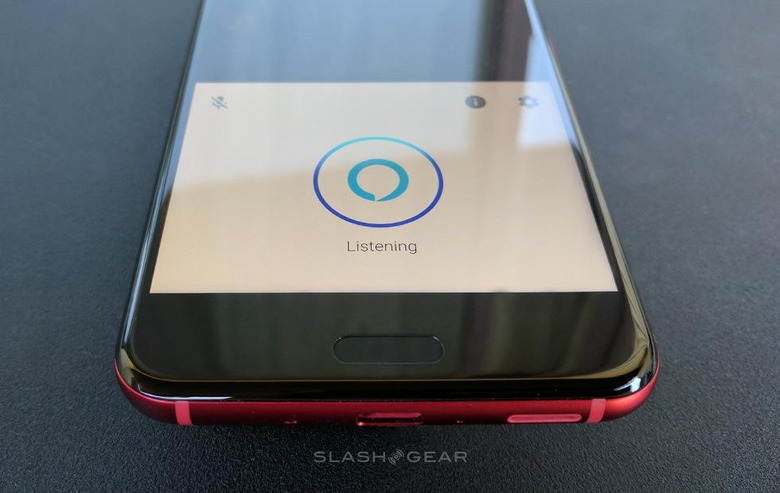Amazon Alexa explained in 5 steps
Your family might have a question or two about Amazon's Alexa and/or a very inexpensive Echo device this holiday season. As such, we've compiled a list of 10 simple points that you might want to relay. This isn't a cheerleading list, and it's not the list you'll want if you're looking to convince your family that Echo devices and Alexa are a great idea. Then again, it's not all bad.
5. Amazon Echo devices use Voice Recognition
Devices with Alexa, including Amazon Echo devices, work with voice recognition technology. Devices hear your voice and decipher the words, constructing a complex series of "if this, then that" equations. If the machine believes you've told it to sing a song, it'll select a song it knows how to sing, and it'll sing. Have a peek at our first ever Amazon Echo article to learn more about the origins of this technology.

4. Amazon uses what you say to sell you products
Each time someone speaks to Alexa, Alexa becomes smarter. Technology called Machine Learning allows Amazon's artificial intelligence to become more complex. Because Alexa is capable of recognizing your voice – assuming you've connected Alexa to your Amazon account – Amazon uses the things you say to create a profile. That profile allows Amazon to target you with emails and suggestions (on Amazon.com, etcetera), for products you'll probably want to buy.
3. Amazon stores audio clips
The moment you say Alexa, Amazon begins to record what you say, until the moment it decides that your command or question is complete. That audio makes your individual profile more unique and better able to target you with potential products for sale. That audio is also used to make Alexa smarter – again, see #4.

2. Alexa is always listening
Amazon says that Alexa only sends audio to its servers for processing once a user summons Alexa. SEE THIS: How private is Amazon Echo?
Once a user says Alexa, Amazon begins to listen and process commands. Much in the same way that every voice assistant is always listening for that command*, Alexa is always listening.
*This includes Microsoft's Cortana, Google Assistant, Apple's Siri, and etcetera. This does NOT mean that any individual one of these technologies is failing to act as its creators suggest. When these products work as intended, all audio that does not occur after a call (after Alexa, for example) SHOULD be instantly deleted. That audio should also never leave the device and should never reach the internet.

However, as we've seen before, the way these products are intended to work isn't always the way they DO work. Have a peek at the timeline below to see several examples of ways in which Alexa's misbehaved over the last several years.
1. Alexa can be fun
For sure, the technology that makes Alexa a reality is fun to make use of. If you're willing to subvert reality for a moment and imagine Alexa only consists of the skills – like telling you the temperature or playing an audio game – Alexa is pretty great. If Amazon Echo devices worked 100% locally, without the need to send information to Amazon via the Internet, you might have no reason to do anything but praise Amazon's tech.
Take a trip down one dollar Echo Dot road if you're ready to roll with Alexa. Let us know how it goes!

